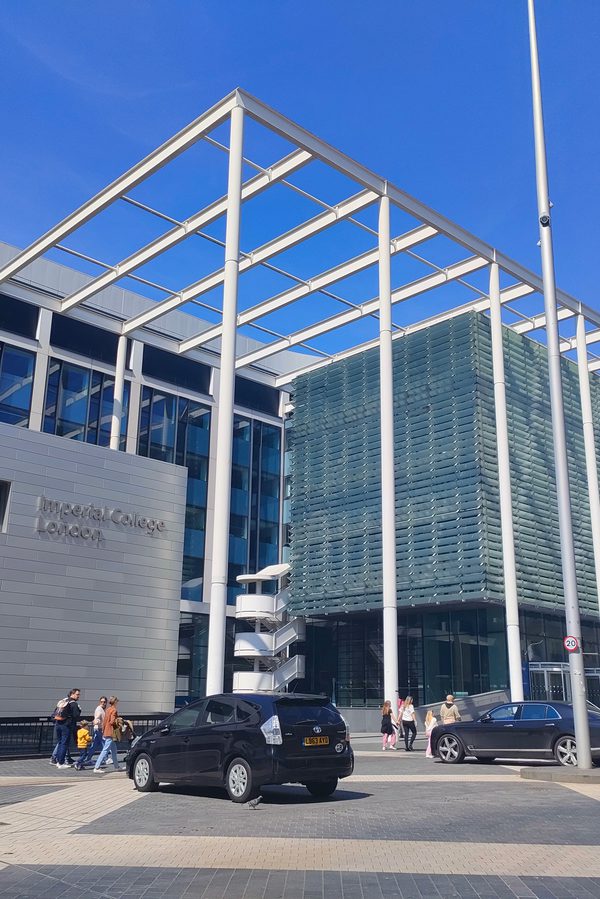
Genetics + Genomics, Split Labs and Free Wednesdays: What’s it like studying Biomedical Science at Imperial?
By Cadence Ong Jing Han – 5th September 2023
Cadence Ong Jing Han is an incoming Year 2 BSc Medical Bioscience student at Imperial College London. She talks us through why she chose her course, and gives us the low-down on what the first year of her course is really like.
Why Biomedical Sciences?
Maybe you’re like me - someone who loves Biology, exploring more about the human body, and particularly drug discovery to help improve it.
But you can’t stand to see too much blood (so that rules out Medicine).
And you’re not particularly interested in plants and animals (so that rules out Biological Science).
And you’re not really Chemist material either (so no Chemistry and Biochemistry for me).
After combining all of these factors, you might find that like me, Biomedical Sciences is the one that suits you most.
Course Structure & Modules
In Year 1, all modules are fixed and compulsory. We have Statistics, Molecular & Cellular Biology, Chemistry of Biological Interactions, Integrative Body System (including endocrinology, haematology, immunology, musculoskeletal and neuroscience) and Lab Pod I. There is also an option to take a Horizon module.
In Year 2, the core modules are Genetics and Genomics, Lab Pod II and I-Explore. We would also be asked to choose 4 out of 7 optional modules (Microbiome in Health & Diseases, Cancer Biology, Immunology & Inflammation, Cardiovascular & Thoracic Biology, Stem Cells & Reproductive Biology, Pharmacology & Toxicology, Neuroscience).
In Year 3, we will work on projects which would be either lab-based, literature-based or work placement-based. For literature-based and work placement-based projects, since it will take shorter time to complete compared to the lab-based one, students will be required to take two compulsory short modules: Creative Reflection on Professional Practice (CREF) and Science Communication & Public Engagement Advanced (SCPE-A). Besides the project (and short modules if applicable), every student would have to pick 3 out of 12 optional modules: Biology of Ageing, Biomedicine Data Science, Designing Drugs for the 21st Century, Ethics & Medical Regulation, Global Health, Innovation & Translation in Medicine, Nanobiology & Biomaterials, Obesity & Diabetes, Regenerative Medicine, Precision Medicine, Science Communication & Public Engagement (SCPE) and Targeting Antimicrobial Resistance.
Teaching and Assessments
My course implements the flipped classroom approach and involves a lot of independent studies. Two weeks before each lecture, we would be given access to the reading materials and we have to finish reading them before the corresponding lessons in order to get the most out of the lectures. Classes are often done in terms of group discussions where each group would work on questions given together and the lecturer would discuss the answers with the whole class afterwards. We also have consolidation exercises to enhance our knowledge after the class. Plus, if you need some extra help, there are optional drop-in sessions for students!

How do I get marked?
Various ways! Writing a practical report, making a research poster, online exams, lab book assessments, practical written exams, oral presentations and so on. Coursework and exams would usually have similar weightage in each module in the first and second years.
A Typical Week as a BioMed student at Imperial
During my first year, I usually had classes four days a week. One day lab (half of the class has it on Mondays while another half has it on Fridays) and the rest of the days would be lectures. On Mondays, I would have to travel to another campus in Hammersmith to work in the lab from 9 am to 5 pm. On Tuesdays to Thursdays, I would have lectures on the main campus from 9.30 am to 12.30 am. Everyone in the university would finish by 12.30 pm every Wednesday and so there would be a lot of society activities happening on Wednesday afternoons.
Managing Time with Social Life/downtime
Setting aside some time for the pre-session reading and revision, I don’t have loads of time, but enough to still have a decent student experience! Particularly as my exams are distributed evenly throughout the three terms and my course places equal weightage between coursework and exams, I had less stress (compared to students from other departments with more exams in one term than another or with exams being very heavily weighted) about exam preparation over the holidays and therefore could spend more days taking a break from studying or exploring the 340 clubs and societies offered by Imperial!

Personally, I am a very active member of the Imperial Malaysian Society. During my first year, I was heavily involved in the Malaysian Society annual flagship event, MNight, which is a Malaysian cultural performing arts night. I used to have dancing, singing and acting rehearsals every week on Wednesdays and Saturdays. Through this event, I managed to step out of my comfort zone and also make new friends from other years and courses.
Moving from pre-university to university is a daunting experience, particularly if you’re from a background like, and so had to adjust to an entirely new culture! So it is always going to be challenging to balance your time at the beginning. But, it is absolutely normal and you are not alone. Fret not! You will definitely figure out a timetable that suits you the best after some time! All the best for your university applications!















